
Based on its name, you'd think cream of tartar contains dairy products, but it actually has more in common with fruit than milk. Cream of tartar contains only one ingredient -- tartaric acid -- which is found in certain types of fruit.
Ingredients
Despite its name, cream of tartar doesn't contain dairy, nor does it have anything to do with tartar sauce. Cream of tartar is a byproduct of the winemaking industry. Grapes contain tartaric acid, a natural, completely harmless substance. When grapes are made into wine, the tartaric acid forms a sediment in the bottom of the wine barrel. This sediment is processed, dried and made into cream of tartar. When grapes are processed at home to make jelly or juice, the same crystals form at the bottom of the pot, and home-canned jars of jelly or juice may contain these crystals.
Uses
Cream of tartar is completely safe to eat if you have a milk allergy, according to the Food Allergy Research and Education website, although many baked goods that contain cream of tartar might also contain dairy products. Cream of tartar is most often used as a leavening agent, and is sometimes used as an ingredient in baking powder. It prevents sugar from crystallizing, making it a prime ingredient for candy makers. In commercial applications, cream of tartar is used in sodas, candy, bakery goods and some gelatin desserts. It can also be used for cleaning copper. In the home kitchen, it's most commonly used to provide softness and texture to snickerdoodle cookies and homemade play dough. When added to egg whites, cream of tartar creates a stiffer, more stable product.
Storage
Because cream of tartar doesn't contain any dairy, it can safely be stored at room temperature. When stored in a cool, dry pantry, it will last at least two or three years, and probably even longer. In warm, humid conditions, it might become lumpy or develop mold growth.
Nutrient Analysis
Unlike dairy products that contain fat, protein, calories and nutrients, cream of tartar has a slim nutrient profile. Whether you're making snickerdoodles, play dough or whipped egg whites, chances are you'll never use more than a teaspoon or two in a recipe. This minuscule amount of cream of tartar has almost no nutritional consequences. One teaspoon of cream of tartar has 8 calories, no fat, no sugar and no vitamin A, vitamin C or calcium. It has no protein, but provides 1 percent of the daily recommended allowance of iron.
Related Articles
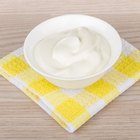
What Are the Ingredients in Yoplait ...
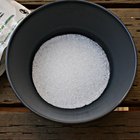
How to Make Xylitol Toothpaste

What Is Agave Syrup?

What Is Glycerine Used For?

Will Cream of Tartar Whiten Teeth?
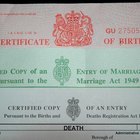
How to Get a Replacement Birth ...
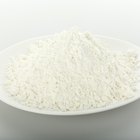
Foods With Calcium Phosphate

Calories in a Tablespoon of Cream Cheese
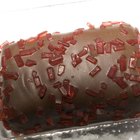
FDA Standards of Chocolate Identity

How to Make a Lip Mask for Extremely ...

Merle Norman Ingredients

What Foods Provide Calcium D-Glucarate?
How to Soften Crystalized Molasses

What Are the Ingredients in Elizabeth ...
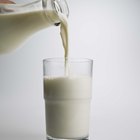
How to Dissolve Non-Instant Milk Powder

The Difference Between Bittersweet ...

What Is the Nutritional Value of Wheat?

The Shelf Life of Citric Acid

Calories in Peppermint Extract

What Are the Ingredients in Proactiv?
References
Writer Bio
Julie Christensen is a food writer, caterer, and mom-chef. She's the creator of MarmaladeMom.org, dedicated to family fun and delicious food, and released a book titled "More Than Pot Roast: Fast, Fresh Slow Cooker Recipes."
Photo Credits
Eising/Photodisc/Getty Images